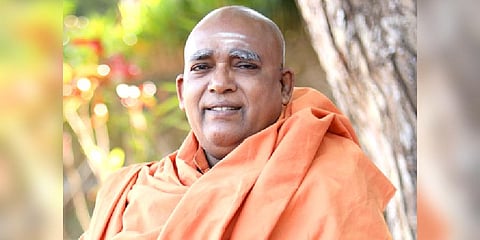

THIRUVANANTHAPURAM: Declaring that it was time for “sweeping overhaul” of certain temple customs, Sivagiri Mutt chief Swami Satchidananda announced the launch of a campaign to make the temples in Kerala accessible to believers from all religions.
The campaign, coming a century after the inter-religious meet convened by Sree Narayana Guru, will raise demands such as allowing temple entry to non-Hindus who are believers of Hindu gods and lifting the shirt ban on male devotees. The campaign will begin at Guruvayur temple where singer K J Yesudas was denied entry in the past as he was a non-Hindu.
“It is time for a sweeping overhaul of temple customs that undermine the ideals of equality and social justice,” Satchidananda said. He said Yesudas’ devotional songs praising Guruvayurappan are famous and are played at the temple daily, yet his request for entry was turned down. “There are many non-Hindus like him who are believers of Hindu gods. They should be given entry in temples,” he told TNIE, adding that he will lead a march to the temple raising the demand.
As per the custom at Guruvayur temple, only Hindus can pray inside the temple. Those born in other religions are required to produce a certificate from Kozhikode-based Arya Samajam stating they have converted to Hinduism. In several Kerala temples, non-Hindus need to furnish a self-affidavit saying they are a believer of Hinduism.
Satchidananda felt both models are outdated. “Non-Hindus visit a temple as they have faith there. They should not be forced to produce a written proof for that. Kerala’s temples should follow the model of some famous temples in North India which do not ask for any certificate,” he said.
Thantris needn’t comment on social issues, says Swami Satchidananda
Swami Satchidananda also rejected the claim often made by some thantris that Kerala’s temples follow a different system of thantric worship.
“Thantris’ powers are restricted to thantric and Vedic practices. They need not comment on social issues. Our demands – allowing hassle-free entry of non-Hindus in temples and lifting the shirt ban on male devotees – are social issues. Thantris have no role in these issues,” he said while reminding that historic reforms in temple customs were not achieved with the permission of thantris.
“I’m also against the current practice in which the thantri position at major temples is reserved as a hereditary right of certain communities,” he said.
Satchidananda had mooted the idea to lift the shirt ban during the annual Sivagiri pilgrimage in January.
Chief Minister Pinarayi Vijayan, who was at the venue, seconded the idea. However, none of the five government-controlled boards have implemented it so far. But Satchidananda is hopeful.
“Several temples under the SNDP and the Chakkulathukavu Devi temple managed by a Brahmin family lifted the ban. The devaswom temples will follow it,” he said.
Swami also suggested equal distribution of devaswom jobs among Hindu communities. “Around 90% of devaswom jobs, ranging from that of priests to office jobs, are held by people of upper castes. Equal representation of all communities should be ensured in future recruitment,” he said.